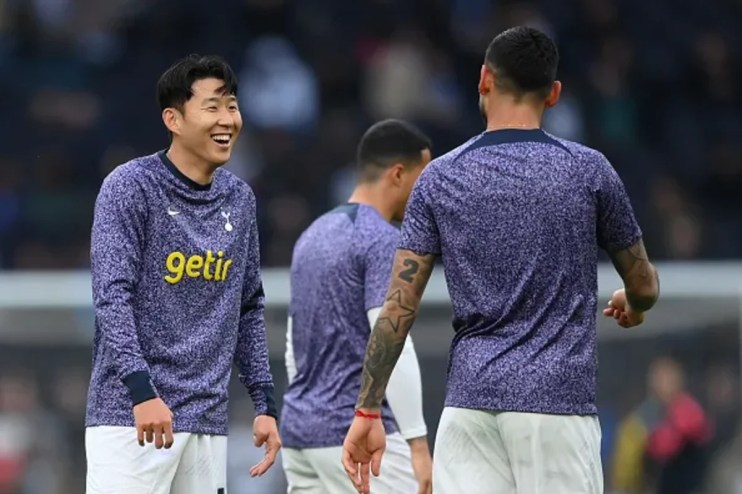Soft power: Hard-headed diplomacy

A new Soft Power Council convened by the government will bring leaders from sport, education, culture and business together to craft a unifying narrative that will enhance Britain’s influence around the world, says foreign secretary David Lammy
Almost ten years ago, relations between the United Kingdom and South Korea took a big step forward.
In traditional Foreign Office terms, such steps often mean a diplomatic set-piece like a VIP visit or a new bilateral agreement. But on 28 August 2015, what happened was very different. Heung-Min Son joined Tottenham Hotspur.
As a Spurs fan, I know just how important Sonny has been for the club. He is the first Asian player to win the Golden Boot, and the first Asian player to score one hundred Premier League goals. His passion and skills have given us plenty to celebrate over the years.
However, since becoming Foreign Secretary, I’ve also had the chance to see the positive impact his transfer continues to have on British interests in South Korea.
There are now 12m Spurs fans in South Korea – four times as many as there are in England. That’s good news for Spurs. But it’s also good news for the whole of the UK.
Thanks to the urge to watch Sonny play, more South Koreans see more of the UK. A country whose Premier League attracts diverse talent from all over the world, producing some of the most thrilling displays on the planet.
And thanks to that connection, South Koreans are more likely to have a positive view of us. They are more likely to come and visit us and more likely to buy goods or services from us.
As I saw on my own visit to South Korea last year, this really matters. With North Korean troops deploying to fight for Putin’s mafia state, our security interests are even more closely intertwined. South Korea is a market brimming with opportunities to boost UK growth. There is huge potential for us to innovate more together in areas like clean energy and tech. They are an increasingly important player on global development – a former aid recipient now on track to become a top ten OECD donor.
The UK is blessed with world-beating assets
This is just one example. Like many aspects of diplomacy, it’s hard to define the precise impact of a moment like Sonny’s move to north London. But, cumulatively, moments like these stack up.
Soft power enhances a country’s influence and drives growth. And fortunately, the UK is blessed with world-beating assets. In just six months in this job, I have seen countless examples. The Tate exhibiting Turner in Shanghai. World leaders who studied at UK universities or Sandhurst. Young Indians whom the British Council connected to the London fashion scene. The warm welcome for Their Majesties on a State Visit to Samoa.
That’s why it was so astonishing that the Tory government chose to attack our creative industries and great institutions like the BBC. They took a step backwards just at the moment when other countries were working out how to use soft power to increase their leverage and influence. South Korea itself has exploited phenomena like K-Pop, the K-Beauty market and excellent TV like Squid Game to achieve a one-hundred-fold increase in those learning Korean worldwide. Meanwhile, Russia Today now reaches 20m Latin Americans, spewing out Kremlin propaganda and partnering with local broadcasters like Venezuela’s TeleSur.
We cannot take our soft power for granted. The UK needs a different approach. As a new report by Labour Together sets out, a close partnership with all those institutions and businesses who contribute to our soft power gives us an edge when it comes to both geopolitics and growth.
That’s why, this week, culture secretary Lisa Nandy and I hosted the first meeting of our new Soft Power Council. The Council brings together leaders in diverse fields from across the country, including rule of law, sport, education, culture and our creative industries.
Working with them, the government will develop and deliver a UK Soft Power Strategy which harnesses the strength of these different sectors to craft a unifying, positive narrative which will help enhance our influence in the world.
Looking beyond the arts
Crucially, this narrative needs to draw on all sources of our soft power. Labour Together’s report makes this clear: our reputation is no longer just a function of sectors like the arts. It reflects an increasingly diverse set of areas from science and tech to the rule of law.
As the Prime Minister set out this week, this government is unleashing the power of AI to transform our country and boost living standards. Figures like Professor Helen McCarthy, Chair of Nanomedicine at Queen’s University Belfast, and Dr Parag Khanna, Founder and CEO of AlphaGeo, are at the heart of this agenda. It is wonderful that they have joined the Council. We need expertise like theirs as we advance our tech diplomacy agenda, and much else besides.
My approach to our foreign policy is one of progressive realism. Investing in our soft power is a form of hard-headed diplomacy. We need to recognise that British soft power is a form of influence like no other – relying above all on our ability to attract and persuade.
That gives us a firm advantage over a regime like Putin’s. Through our new Soft Power Council, this government will ensure we make that advantage count.